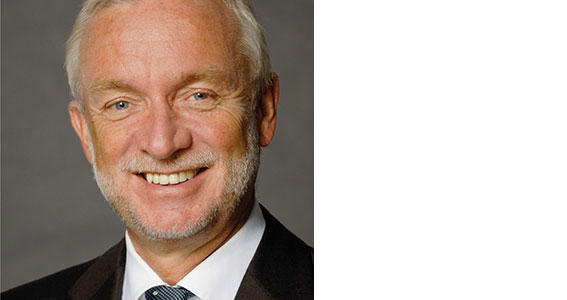
Small-to-medium enterprises (SMEs) are now regarded as key economic drivers in Zimbabwe following the collapse of the formal sector. Standardbusiness reporter, Mthandazo Nyoni (MN), had an interview with Claus Munkwitz (CM), a Senior Experten Service (SES) expert from Germany who was invited by the Association for Business in Zimbabwe (Abuz) last week to give a short address on the importance of SMEs to the growth of economies. Below are excerpts from the interview:
MN: What is the importance of SMEs to the growth of the economy?
CM: If I talk about Germany, of course the quantity of the numbers is higher. More than 99% of the enterprises in the country are considered small to medium. Small and medium-sized companies stand for 60% of the employment. They stand for almost around 55% of the net national product and they stand for very good training facilities in Germany for the young people.
MN: How can Zimbabwe develop or capacitate her SMEs?
CM: I think there is a good chance. Of course, maybe a big problem is now the difficult financial conditions. But with organisations like Abuz that stand for business to develop, we can help start-up businesses by giving them the tools and business models so that they can put up their ideas in a well-structured way before working out a business plan.
I think what is necessary for Zimbabwe is to do a little bit more on networking in order to get a collective feeling of the small and medium-sized enterprises. So, in a time of a crisis, in a time that you want to achieve something, you do not have to stand alone. The SMEs are the backbone of the economy.
MN: Do you think SMEs can contribute to the revival of an economy in trouble such as Zimbabwe’s?
CM: Yes of course, they (SMEs) contribute a lot as the figures have shown.
- Chamisa under fire over US$120K donation
- Mavhunga puts DeMbare into Chibuku quarterfinals
- Pension funds bet on Cabora Bassa oilfields
- Councils defy govt fire tender directive
Keep Reading
MN: How?
CM: Most of these SMEs are flexible and can be very innovative whereas with big companies things take a long time to be actioned. Also, small and medium-sized companies are value-oriented and sustainable.
MN: Looking at the SMEs themselves, how can they develop each other?
CM: I think networking in between the SMEs is necessary. Here I come back to this collective approach, which they should undertake; they should raise their voice together in their small and medium-sized business community. I think associations such as Abuz will be useful in that they do not only represent these SMEs but they can also take a focus of service on these companies and they can help them to do it.
MN: What is your comment on the Zimbabwean economy at the moment?
CM: My comment is that going around the country and what I have seen in Bulawayo so far, it’s sad that many companies have shutdown.
It is sad that many more are operating below their capacities despite the fact that the informal sector makes the biggest composition of national business. But what I also see is that there is a lot of engagement among people. I think your country is probably a little bit better than it seems.
MN: In your opinion, are there any prospects of the Zimbabwean economy recovering?
CM: I do hope. Well, I think it has to recover.
MN: Currently, we have got a serious cash crisis and the economy is nose-diving. Where do you see Zimbabwe, say in the next five years?
CM: Of course, this is one of the major problems that has to be solved. Without cash, without money it’s very difficult and a big boon for businesspeople is the restrictions of course and really your country has to sort it out. I think everybody knows.
MN: How can the government of Zimbabwe improve the country’s economy?
CM: I don’t really know and I am not in a position to answer a question about how politics should be done. But the best politics for the economy is just to ensure a good business environment for the people, for the companies and then infrastructure- wise and so on.
Infrastructure is not bad in Zimbabwe. I see a good environment, for instance the fibre connections in Bulawayo. I have learnt quite a lot that your infrastructure is not bad, but you need good infrastructure, you need good ways of doing business and a healthy political environment.
MN: Based on your observation so far, would you recommend Germany investors to come and invest here in Zimbabwe?
CM: To be frank, not right at the moment but I recommend the companies to have an eye on Zimbabwe and the moment that your economy recovers, I think quite a few companies will be ready to go into co-operation with people in this African market. Right now, I will rather recommend (them) to keep an eye on Zimbabwe, on the economy.











